There are only a handful of bands/artists that performed at both the Monterey Pop Festival in 1967 and Woodstock in 1969: Jimi Hendrix, Janis Joplin, The Who, the Grateful Dead, Jefferson Airplane, Country Joe and the Fish, The Paul Butterfield Blues Band, Ravi Shankar, David Crosby (in The Byrds and filling in for Neil Young in Buffalo Springfield at Monterey, then in CSN at Woodstock), Stephen Stills (in Buffalo Springfield at Monterey, then in CSN at Woodstock), and Canned Heat.
Larry “The Mole” Taylor played bass for Canned Heat during their prime years, including at Monterey, at Woodstock, and for the hits “Go Up the Country” and “On the Road Again”. He has also had a fascinating musical history outside of Canned Heat, having played on early surf rock recordings by The Gamblers, as a session bassist for The Monkees, with John Mayall, with Tom Waits, and much, much more.
This interview was for a preview article for the Canned Heat concert on 7/10/15 at SOhO in Santa Barbara. It was done by phone on 6/29/15.
Jeff Moehlis: What can people look forward to at the upcoming concert?
Larry Taylor: I think the thing to look forward to is the more refined musical things that we do now, because we’re a little bit older and we’ve all kind of grown in music. It’s not as garage-y as it was. Now we do a variety, we do some sort of semi-jazz songs, we have a Latin thing that we do. It’s incorporated in with the style originally from the 60’s, but we’ve stretched it a little.
I’m doing a lot of guitar work – I’m doing a lot of Alan [Wilson]’s songs, a lot of the slide that he did. It’s just a little different from what Canned Heat’s been in the last forty years since the original band broke up, that wasn’t representing the music in such a way that we’re trying doing now. It kind of went off in other directions. But now we have a nice mixture of different styles, but we still try to keep the 60’s thing that we did, too. So we’ve got a little of everything.
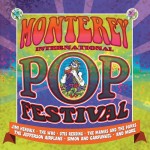
JM: Speaking of the 60’s, shortly after you joined Canned Heat the band played at the Monterey Pop Festival, before your first album was even out. What are your memories of that gig?
LT: The memories of that gig was just the get together of what it was at the time, which was something new for everybody. And just seeing all those artists, like Hendrix, The Who, Janis, and all those people all together at one place at one time, which never really gathered that way ever again. It was a great thing that I was able to experience all that. Not everybody’s done that [laughs].
JM: Of course I have to ask you about Woodstock. What was that experience like for you?
LT: Woodstock kind of went by really fast. We were on the road – I think we’d been on an eight week tour or something like that. It was the last gig of the tour. I was raring to get home, so my mind wasn’t there. I don’t remember much about it, except the audience hearing the song at sunset, which was the boogie we played, and the whole place went nuts. I mean, totally nuts. It was almost like a tidal wave of energy from the people. It’s kind of hard to explain. If you’d have been there you’d know what I mean. That’s what I remember now, of that.
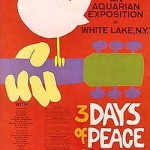
And, you know, going in on the helicopter. We actually had to take a Cessna plane from New Jersey up to the airport in Bethel – I think it was Bethel – and then we got out and they took us in the helicopter over to the site. That’s kind of a memory.
JM: In the movie you see that sea of people – pretty incredible.
LT: Yeah, yeah. I actually had a camera with me and took a bunch of pictures of all that. And it turns out that I gave it to somebody to hold for our set, and I actually told them, “When you’re taking these pictures, here’s another roll of film. This is gonna run out.” The film ran out, and he put the other roll in. I got some pictures, but I lost that roll. I never got it back. The roll that I had was all the stuff from the helicopter.
JM: So you mentioned that at the upcoming gig you’re going to play some of the parts that Alan played. To me, he’s quite an intriguing figure from the early days of Canned Heat. Could you describe the Alan Wilson that you knew?
LT: Well, you know, introverted. A real introverted person. He was just kind of in his own little world with his music. But he had such a unique approach. He taught me stuff. I didn’t get a chance to really learn a lot, but what I did learn taught me a lot.
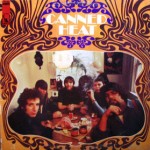
I don’t play exactly like he did, but I try to get the feel of the older style of country blues music, using whatever songs we do with that. Like I was just practicing “Bullfrog Blues”. There’s so many different ways to play “Bullfrog” on the guitar, as you can imagine. It’s simple, but then there’s a lot of simplistic little turns that you can change up. I’m always trying to learn change-ups. What I’m saying is you create it while you’re playing. A lot like B.B. King did. He was always creating, he always made moving lines, never playing the same thing twice, but still having a signature sound, too. I’m trying to acquire that skill. I have it on the bass somewhat. You know, I’m playing a little more guitar now, so it’s interesting to me.
JM: Even before Canned Heat you did some really cool stuff. I was listening to “Moon Dawg!” by The Gamblers [released in 1960]. Some people say that this was the first surf instrumental song. That’s going way back, I know, but what are your memories of that?
LT: Well, that wasn’t really the first – there were other instrumentals. I was playing in different groups, playing around Hollywood. We played the instrumentals a lot, and we played blues, B.B. King songs, the whole thing. I go back all the way – “Woke Up this Morning” by B.B. King, I was playing that in ’56. We were just playing it how we played it. But The Gamblers – the memories of that is living on Sunset Boulevard, playing around clubs and playing private parties, and collaborating with Derry Weaver who was the guitar player who we had in this band. Just that whole era, it was part of that, part of what was going on. We just made that record. There was a producer and an A&R, and all this stuff. It was primitive, we were first starting.
I actually had made records before that in people’s houses, with tape recorders, that actually were released. Are you familiar with Richard Clasky? You remember a song “Image of a Girl”? It’s a late-50’s hit [by The Safaris]. It’s a famous one. Well, I made records with him even before he did that, in his house, using the bathroom as an echo chamber [laughs].
JM: I noticed that the B-side of “Moon Dawg!” is called “LSD-25”. What’s the story with that?
LT: A Life magazine article. That’s all it is. That’s where it came from. If you look at Life magazine on the internet, look up ’59 or ’58, I’m not sure what year it was, you’ll see an article about LSD-25. We thought, well that’s a good name to use as the name of a song. We wrote that song, me and Derry Weaver.
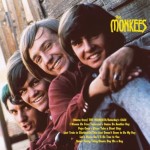
JM: Before you joined Canned Heat, you also played on some songs for The Monkees. How did you get that gig, and what was it like working on that?
LT: Well, that gig was gotten through Teddy Randazzo, who was a songwriter/singer that wrote songs for Little Anthony and the Imperials in the 60’s. I had been working gigs in Vegas with a trio, backing him with three background singers. They’d sing the background parts. Bobby Hart was one of the singers at one point, so I kind of played around with him. One thing led to another, and then they got that deal, I guess it was Colgems records, that got that deal to write those Monkees songs. They weren’t the only writers, there were also those people on the East Coast that were writing songs for The Monkees. Like “I’m a Believer” [written by Neil Diamond], Carole King, that whole New York thing.
JM: I once interviewed Jeff Barry, who has a bunch of Monkees stories. Maybe you remember him? He lives here.
LT: Yeah, yeah. There were the East Coast people, and there were the West Coast people like Boyce and Hart.
And then I got the call from Henry Vestine [guitarist from Canned Heat] about being the bass player [for Canned Heat], because they had already started that band, and had good people playing, and they were looking for somebody and he said, “Do you want to come and play?” And I went and played, and that’s it – the rest is history.
JM: One more question about The Monkees. Were they trying to play instruments themselves at that point, or were they happy to let everyone else do it?
LT: I did the very first Monkees tour, with all the screaming teenagers with their parents, that whole deal. Before the Hendrix one. So I played the very first one – it was called Bobby Hart and the Candy Store Prophets. Me, Gerry McGee, Bill Lewis, the same people that played on the records, and Bobby. We did maybe 15 or 20 dates in the U.S. We traveled in a Lear Jet [laughs]. Today you’d better have some real money to be doing that. Back then it was pretty common. Renting jets wasn’t that much more money. So that was interesting. They used to perform their own songs. We’d back them on songs. Each individual did a song with the band. We played, then they played, then a couple other artists on the show. When that was done there was an intermission, then they’d come out and play their songs, however they played at the time. It wasn’t like the records, because they didn’t play on the records.
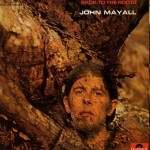
JM: You’re playing at a place called SOhO here in Santa Barbara. It turns out that a few nights before you play there, John Mayall will be playing at the same venue. I know you played with him quite a bit in the 70’s. How did you end up playing with him?
LT: I had gotten out of Canned Heat. I had met John… Bob Hite had a house, and John, when he first came over, needed a place to live. So John lived up there. After I got out of Canned Heat he said, “Do you want to play with me?” I did, and the rest is history. I did about 8 or 9 years with him.
JM: I’ve mentioned a few of the people that you’ve played with, but there’s a number of others. Are there any that particularly stand out to you?
LT: Well, the Hollywood Fats Band, which was in mid-70’s to the early ’80’s. It was like a traditional… Today they call it retro. We were one of the first bands to play the old style, with the upright bass, the swing-type songs and blues, early blues from Chicago, a mixture of different styles. It was a really interesting band to play with because that’s where I really did learn how to play that kind of music.
Country blues – playing with Canned Heat – was one thing, but that was more garage, except for Allen. You had these other people playing, like Henry, who got influenced by the psychedelic era, although before that he didn’t play that way, but after taking the drugs and all of the sudden there was this big loud thing going on with him. It just kind of freed him. There’s nothing wrong with it, it just happened to be a change at the time.
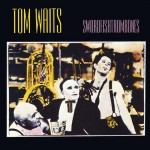
JM: I know you played with Tom Waits on Swordfishtrombones and Rain Dogs, which are such bizarre but compelling albums. What kind of guidance was he giving the musicians for those?
LT: He wasn’t really giving any guidance. You just played off what he was doing, pretty much. He trusted me because of my intuitiveness in playing music. A lot of people, they walk in with charts, they walk in with the notes written out and the exact this and that. But I’m one of those players that just plays by feel. I can also read [music] – I learned how to do that, too. I don’t do it much, but I can do it. With him, you feel comfortable, like with me playing. The musician stuff he would choose… it’d always be some fella that had a bit of their own kind of voice that he wanted to use in his music. He just knew what it was by hearing them. He didn’t really give any feedback or any advice about what to do or what not to do.
JM: What advice would you give to an aspiring musician?
LT: I hear that one all the time [laughs]. I always say stick with it. Today there’s so much going on, and it’s not that easy to stick with something. Financially it’s hard to be a musician these days, so you’ve got to take that into consideration. But I mainly say just stick with it and do what you like.
JM: What’s in the works for the future? Does Canned Heat ever talk about doing a new album?
LT: We just did a live album – it’s a DVD that just came out. Honestly, I’m really not seeing that in the future of this band. There’s a lot of reasons, but I don’t see any future in that. For myself, I’m older now, and I’m pretty much ready to quit going on the road, to be honest with you.
Unless Tom [Waits] would do something. I just did the Letterman show with him recently – it was one of his last shows [check it out here]. He mentioned something about wanting to do some playing on the road. “I wanna do some shows.” But with him, he’ll talk about it but it doesn’t really transpire most of the time. Most of the time he’s just writing songs. That would be something I might do. Financially it’s the best one.
It’s really hard, man. We’re playing these little clubs. Ain’t much to it, the money you make. We want to play, we like playing, but you’ve still got to be compensated. Because we don’t have the original people singing, it’s really not easy to book it. They want to hear the singers – that’s more important to them than the musicians. Even though this four piece has really good musicianship, it doesn’t have those singers. That makes a difference.
JM: Is there anything that you want to set the record straight about?
LT: There’s a lot of things, but it wouldn’t be worth going into. I don’t think it makes any sense to go into it, because it’s not going to change anything [laughs]. Water under the bridge, pretty much. But there’s always something. I mean, when you have a bunch of people together, be it personalities…
I was watching the B.B. King documentary that was on Netflix. One of the things he said that stuck out was that he’d rather have nice people that can play good and get better, versus someone who’s really good but a jerk. You get a lot of that, man. Let me tell you, you get a lot of jerks. They just don’t know, and they have an attitude. I can’t go into it, but it just happens to be that way.
JM: How is Harvey [Mandel] doing? It sounds like he’s been having a lot of surgeries [for nasal cancer].
LT: The last thing I heard was they finally got them to start building his nose. He’s had a few operations. There were a couple of problems,and now everything’s OK as far as I know.
Speaking of operations, I’ve had eight operations [laughs]. I had bladder cancer, what you call non-invasive bladder cancer, kind of like a skin cancer on top of your skin. You take it out here, it pops up over there. I’ve had some complications, but I’m OK. I just had a kidney removed about five months ago. And then I had about seven bladder cancer operations. I’m lucky that mine’s not invasive. It hasn’t changed in almost nine years now. I’ve just got to live with it. It’s like anything else. You get older, this shit happens, that shit happens. You get up everyday and wiggle your toes – if you can see your toes then you know everything’s good [laughs].
JM: And you’re still out playing! That’s great!
LT: Oh yeah, I’m still playing. There’s always something. Actually, there’s some projects in the wind, but in this music business, especially today, you really never know what’s going to happen. Years ago I made a record with Leo Kottke, and we’ve been wanting to do an album where I play string bass. Every now and then I’ll get a session with a guy who wants me as the bass player. There’s always something there. I’m not looking for it, but when it comes I just act accordingly.
JM: That’s be great if you could do something with Leo – he’s one of my favorite guitarists.
LT: Oh yeah. I’ve known him since the ’60’s.
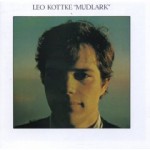
JM: You played on Mudlark with him, right?
LT: Yeah, that was an album I played on. There was a song on there that Kim Fowley wrote. I knew him [Fowley] in the late 50’s, early 60’s, since ’56. The thing is, I overlap many times over with most people. Even these musicians that became famous today, I already was doing stuff even before they started playing guitar. But I’m still here.
For instance, one of the first gigs that I did with Jerry Lee Lewis, I believe was up in the Oakland Auditorium. B.B. King, James Brown and the Famous Flames -that’s when he had the background singers – Ray Charles, Duane Eddy, Larry Williams, Jerry Lee, there were a few more. I met B.B. King then. I’ve known B.B. King since 1960. I was watching this bio, and all these people are, “Oh yeah,…” I’m not mentioned because I’m been doing this shit too long! I’d already overlapped and started over and went around the circle three times before any of these people did anything. That just happened to be the way my thing worked out. I’ve done so many different things with so many different people over the years. I don’t know how many artists I’ve played with. Hundreds.
JM: I’m looking forward to your upcoming gig. It’s a great venue – I think you’ll fit in very well.
LT: Yeah, we took this gig because it was attached to some other little gigs that we’re doing, then we’re going up into Canada to play some festivals. That’s the only reason we can stay together, is to play the festivals – they pay decent money. The only way we can stay together is to have those kinds of gigs. There’s so many bands from the era that could play, they’re still together, but it’s hard to get booked. We happen to be fortunate enough to have those three hit songs. That makes the difference, I think, in the total outcome, to be honest with you. Of course, we do do those songs [laughs]. We have to do those songs. It’s a good cross-section. I think you’ll like it. Some people like it a lot, some people want to hear more of this or that or the other thing, but we can’t always do everything that we once did. We can’t do all the album songs because there’s really no singer to do them.
We switch off. We have two different bands. Basically, we have a band where I play bass, and I’m playing a certain style and stuff. Then the other guy [John Paulus] plays bass and I play guitar. He’s kind of covering that and he’s a really good musician. He’s singing the songs, because he sounds the best of any of us singing. JP’s been around for years and years, playing with different people with different styles of music. I met him years ago, and I always thought he’d be a good asset to have as a musician in this band. It’s so hard to find people that are diverse and have a lot of styles. This guy has more of a rock style guitar, like Clapton, B.B. King, blues… But not really. I can’t say Clapton because he’s got it all. To me he’s one of the greatest that ever was and probably ever will be. But this guy’s really, really good – he’s like a jazzer, too. I do jazz, too, so we incorporate a little of everything. He’ll play a balance of all those jazzy things and the rock thing, and then I do more of the country blues stuff. I think you’ll like it.
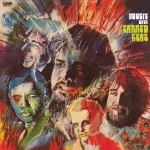
You have to remember that it’s a bunch of old fucks, so it is what it is [laughs]. It is what it is, and it ain’t gonna change. It ain’t gonna be 1968 or ’67. You know, a lot of people don’t like older people playing. They despise it. We get that all the time. I was at a gig one time – we were back east someplace, some small town where we played at a small amphitheater. We were in the back, in the dressing room. John Sebastian was on the show – I think he’s one of the greatest underrated artists of all time, and songwriter and guitar player. Anyway, so we’re back there hanging out – me and my wife were there – and we were walking to go to dinner, and I heard this guy go, “Are those guys 80 yet?” [laughs] This is 2010. “Are they 80?” “No, they’re 90!” [laughs] I just turned 73. But it’s funny how people see old people. They see them as old. Even if you’re not as old as what they say, they see you as old. A lot of people despise old people playing music. I know a lot of people that don’t like to go to concerts because the people are too old. We’re definitely one of those bands that has old people in it.
JM: I wasn’t alive for the original Woodstock, but I saw Canned Heat as part of the Heroes of Woodstock tour back in 2009. I thought you guys sounded great!
LT: There’s always going to be that certain kind of grooving thing that we did that people don’t do today. If you listen to the music today, everything sounds the same, the chord changes are all the same. What happened? I think that technology is what caused it.
JM: I something wonder if it’s too easy to make music now. Back in the day, only the really talented people did it, right? Nowadays, anybody can do it.
LT: Anybody can do it. So it’s everywhere. So that’s part of it. And then the actual talent isn’t as prolific as what it used to be. Real songwriters are like a thing of the past.

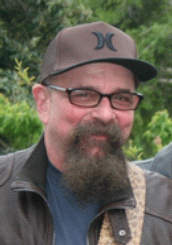
Larry & Andrea were my next store neighbors when I lived in L.A.
We had lots of good times ca. 1977. He was studying the upright bass at the time. He was playing for the Hollywood Pats Bules band at the Quite woman.
Would like to contact him.
Larry and Andrea- Wonderful people.
Larry was amazing. His talent inspired thousands of bassists. He is sorely missed-